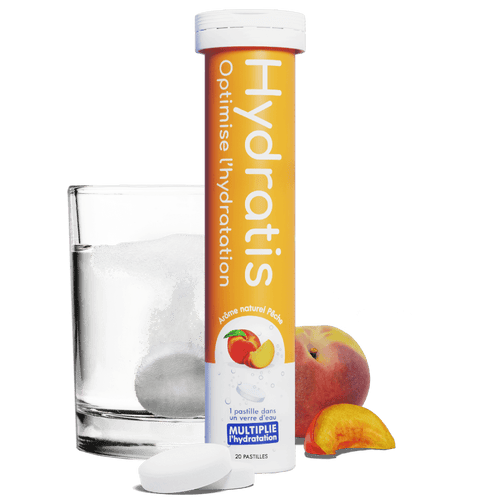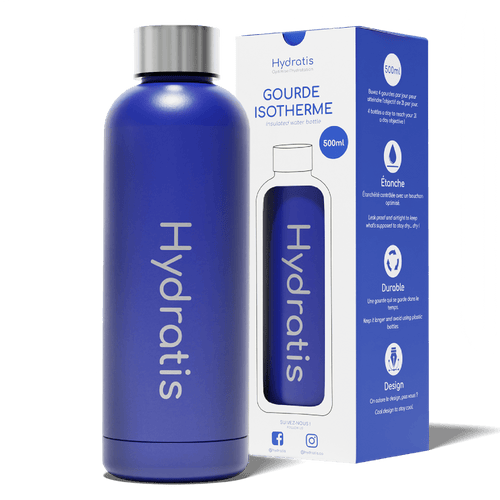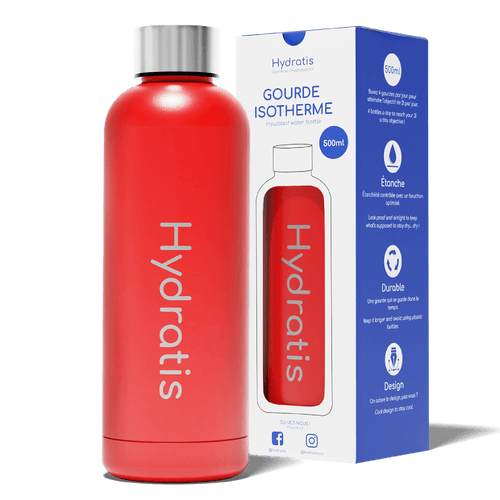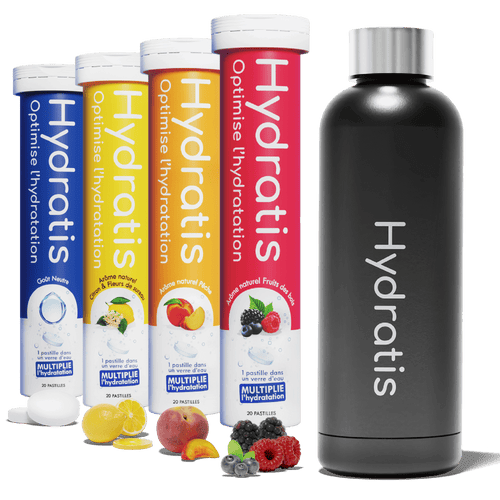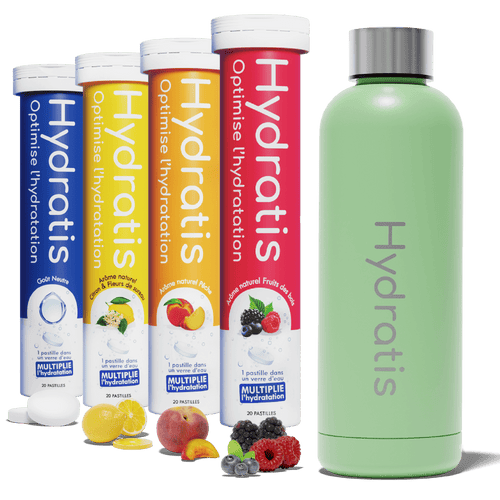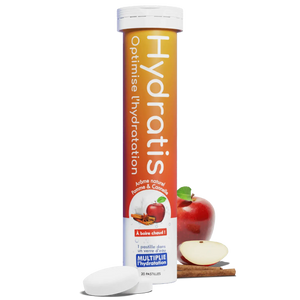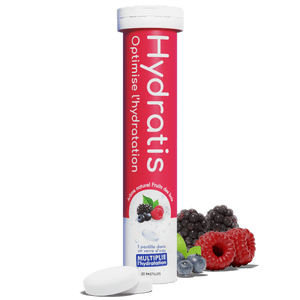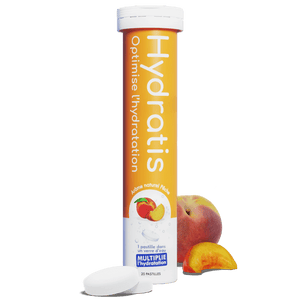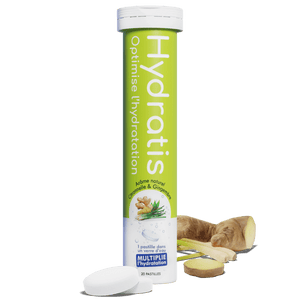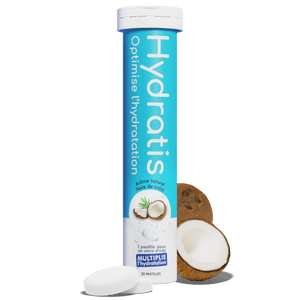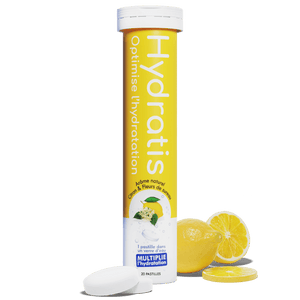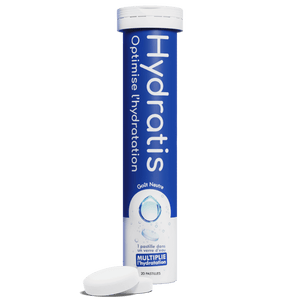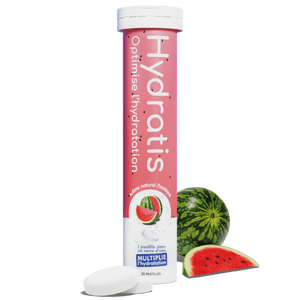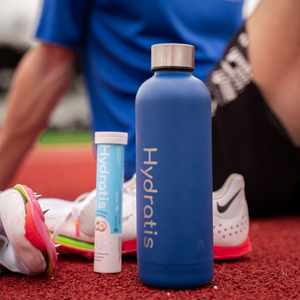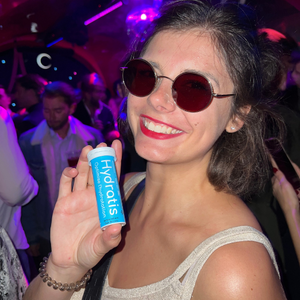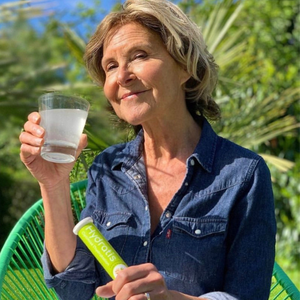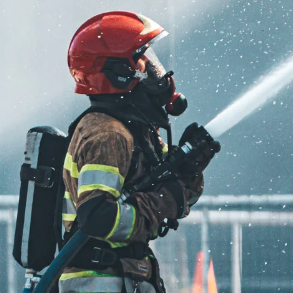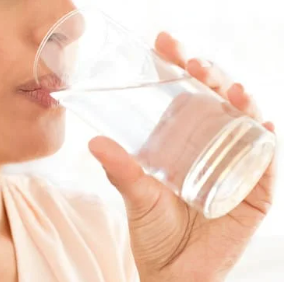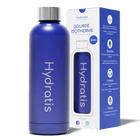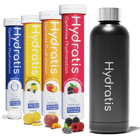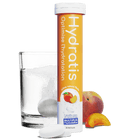
What is the impact of altitude on your metabolism?
General information on metabolism:
Second vital element after oxygen, water is the main constituent of our body since it represents 60 to 70% of our weight. So, no way to miss it!
However, water needs vary from one individual to another. Indeed, they are specific to each person's morphology, lifestyle, energy expended, climate, body temperature or physical activities practiced. It is considered that every day, between two and three liters of water escape daily from the body through different routes of elimination: urinary, respiratory, perspiration...
Humans are homeothermic in nature. Even motionless, we consume energy. Respiration, the functions of elimination, the assimilation of food, digestion represent the minimum expenditure and characterize the basic metabolism.
Altitude, sport and dehydration:
The muscular exercise in high mountains has variable consequences depending on its duration but also on the altitude at which it is carried out. The effect will be different if it is a race of several minutes, about fifteen hours or if it is an expedition of several days because the effort provided by the body and the energy needs are not the same.
Here are various factors that can also influence your physical activity:
Cold : which increases energy needs and particularly carbohydrates. our metabolism struggles to keep our body at 37°C, which therefore leads to an increase in the number of calories burned)
Oxygen : which drops sharply at altitude, the body finds itself in lack of oxygen, we speak of hypoxia. This lack can be felt from an altitude of 1500 meters during sports practice.
Carbohydrates are the metabolites that use the least oxygen to "burn", which explains their very important role in the nutrition of mountaineers.
The level of hydration: indeed, dehydration can be significant in the mountains and is due to different causes: sweating due to intense effort or even breathing which becomes faster due to the scarcity of oxygen.
You have to be careful with this dehydration because it can cause mountain sickness which manifests itself in headaches, nausea, dizziness, shortness of breath and fatigue. Dehydration can also cause serious complications, such as acute pulmonary edema (APO) or brain edema.
It is therefore essential to know how to recognize the symptoms of dehydration in order to be able to react at the first signs. These symptoms are:
- Dry mouth and tongue,
- Increased thirst,
- Headache,
- Fatigue and lethargy,
- Dry skin,
- Muscular weakness,
- Dizziness,
- Lack of concentration,
The color of the urine remains one of the most effective means of judging one's state of hydration. Indeed, dark colored and concentrated urine is a sign of a lack of water in the body.
A few tips :
Not only should you drink, but you should not wait to be thirsty to drink. Indeed, the feeling of thirst indicates that the body is already suffering because it is already a sign of dehydration. It then becomes very difficult to compensate for the water deficit.
Daily and outside of any effort, it is recommended to drink about 1.5 liters of water per day. However, during intense and long-lasting physical activity, such as during a hike, our needs increase to 3 or 4 liters on average.
Be careful not to drink too cold, at the risk of creating gastric problems. Sodas and energy drinks are also to be avoided because they are too sweet which accelerates dehydration.
We advise you to drink little but often so as not to lower muscle performance.
Drink yes, but what?
Tea and coffee are essential when hiking, but unless you are perfectly sure that you are not iron deficient, it is better to take them away from meals. Taking tea (black or green) like coffee considerably reduces the assimilation of iron, which is known to be necessary for the production of hemoglobin for the transport of oxygen in the blood and tissues. And at altitude, any solution for better oxygen saturation is good to take.
If you still have room in your bag, consider sparkling water . It is an alkaline drink that buffers acidity, preserves the body's mineral reserves and helps reduce cramps and aches. It is in your best interest to drink it in the evening, after exercise. Also think of reconstituted fruit juices, soups, herbal teas... which allow you to vary your liquid intake and drink something other than water.
How to drink?
You should not start drinking once you have reached altitude, but 24 hours before in order to have optimal hydration!
Water suitable for exercise must contain more mineral salts in order to compensate for losses. It is also slightly sweetened to bring the fast energy which will be able to make the link with the slow energies. (See hydratis solution section). An isotonic drink will promote good gastric emptying and good intestinal absorption. It acts quickly without loading the stomach which it leaves as quickly as water before being absorbed at the level of the intestine. Indeed, isotonic drinks are quickly assimilated and provide the body with energy (carbohydrates).
The hydrating solution:
Our range of rehydration tablets and sachets can enrich your drink with minerals and trace elements and create an ultra-hydrating drink. Indeed, this allows a faster assimilation of liquids and adapted to physiological constraints. It also helps you, thanks to its mineral salts, to support your metabolism, promote muscle recovery, reduce physical and cerebral fatigue and help facilitate digestion.
Remember to make a preventive consultation before any stay at altitude with your doctor who will judge the advisability of a specialized consultation according to your state of health and the conditions of the stay.

Conclusion :
Don't forget to have your drink and a Hydratis solution close at hand and not at the bottom of the bag to guarantee the most regular hydration possible.
